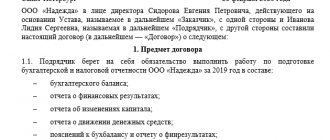The concept of “public service” includes three of its types - military, law enforcement and civilian. The most popular type - civil public service - today attracts many people who want to devote themselves to it. There are so many reasons why this happens. The main thing, perhaps, is stability, which no commercial enterprise, even the most successful today, can boast of. This concerns not only the fact that your job will not be cut, but also timely salary payments, which include numerous allowances and bonuses, in total they can be several times more than the established salary. Civil servants, like no other, are protected socially - they are guaranteed paid leave and sick leave. Vacation, in addition, is not 28 working days, as for most workers, but one and a half times longer. In addition, state-owned enterprises provide employees with a social package and guarantee benefits.
To work in a government agency, you must meet certain requirements for education, qualifications and experience.
The prestige of the civil service is also of no small importance. The higher the status of a state enterprise, the higher the status of its employees, but even locally, the managers and employees of these enterprises acquire numerous useful connections, since they have the opportunity to influence the activities of many enterprises. Another advantage is the opportunity to move up the career ladder.
Disadvantages of working in government agencies
Despite such serious advantages, you can often see advertisements in the media about available vacancies in government agencies. Staff turnover in many of them is also high. This is explained by large volumes of paperwork, which not everyone can handle. Specialists are busy preparing reports, forecasts, and working with letters and appeals. Not every ambitious person who has a sought-after specialty can handle such routine work, and everyone does it - from ordinary employees to department heads.
Unlike commercial structures, specialists in government agencies do not bring much benefit, so to advance up the career ladder, most often it is enough to be loyal to management.
In addition, in fact, violations of the Labor Code are practiced in government organizations quite often. Management has the right to declare rush jobs and demand overtime, which no one is going to take into account. Personal plans of employees do not really concern managers; employees are not protected from the arbitrariness of management, because they are afraid of losing their place. The longer an employee works, the higher the additional benefits he receives, and the more he values his job.
According to statistics, almost half of current students strive to get into the civil service
. And this is understandable: although the salaries there are not the highest, there is the possibility of stable work and career growth, as well as a good social package. The easiest way to get into the civil service is from your student days - through internship at a university. However, a specialist with experience also has a chance to become a civil servant by passing a competition to fill a vacant position.
Instructions
If you are a student, then try to get an internship at a government agency. As a rule, universities themselves offer students internships in government institutions. However, if the university does not want to help you, then you can find such an internship on your own. Go to the website of any government agency and call the human resources department. Surely there will be a place for an intern there, because you don’t have to pay. If you prove yourself well, you will be able to work there in the future after graduation.
An experienced specialist or graduate who has not undergone an internship in a government institution can try to look for vacancies of such institutions on job search sites. There are usually few of them, but they do occur. If you choose this path, then you should pay attention to the site www.superjob.ru
, since these vacancies occur most often there.
Also visit the websites of government agencies. On these sites, as well as on company sites, there are vacancies. However, to get a job, you will have to go through not just an interview, but a competition to fill a vacant position. It differs from a regular interview in that you will have to collect quite
State civil service is the professional activity of citizens of the Russian Federation in government bodies (legislative and service). It is this type of occupation that requires maximum responsibility and diligence, so high demands are placed on employees.
Dear readers! The article describes typical ways to solve legal problems. Your case is individual.
The civil service can be divided into two branches:
- Federal Civil Service. From the name it becomes clear that citizens who are federal civil servants serve in federal authorities. Accordingly, they receive their salaries from the federal budget.
- Regional civil service. This group includes civil servants who perform their professional activities in the authorities of the constituent entities of the Russian Federation. Salaries come from the budget of a specific region, in some cases from the federal budget.
There are a huge number of positions in the state civil service. As in any job, there are managers (of divisions, departments, etc.), their advisers and assistants, as well as specialists who perform very specific specific tasks and provide specialists for information, economic and other support of government activities.
Any citizen of Russia who has reached the age of majority and speaks Russian can become a civil servant. The age limit for civil service is 60 years. However, not so long ago the President issued a decree according to which the retirement period for civil servants can be extended, if necessary, to 65 years, and for civil servants in senior positions - to 70 years. The main advantages that make civil service so desirable:
- providing a decent pension. And for senior positions the salary itself is very decent.
- Stability. No matter what crisis strikes, the civil service will always be there, and this gives confidence in the future.
- and social package. Civil servants enjoy discounts on travel and utilities. Young mothers can go on maternity leave or sick leave without any problems.
Restrictions related to state civil service
Filtering candidates for civil service begins at the selection level. According to existing requirements, an applicant for a vacant position must:
- reach the age of 18 years;
- know Russian;
- be a citizen of the Russian Federation;
- meet the necessary qualification requirements.
A civil servant cannot hold a position in government agencies, and a candidate cannot apply for a job, if:
- he is declared incompetent;
- he is convicted and has an outstanding criminal record;
- refused to undergo the procedure for access to information that is a state secret;
- has a disease that prevents the performance of official duties;
- relatives are superiors or subordinates;
- renounced Russian citizenship or acquired foreign citizenship;
- provided false documents and information;
- lost the trust of the employer;
- did not perform military service without legal grounds.
While serving in the civil service, employees are prohibited from:
- disclose information obtained in the course of performance of official duties;
- engage in entrepreneurial activities, both personally and through proxies;
- work in elective positions in local government bodies;
- purchase securities on which income can be received;
- receive remuneration from individuals and legal entities for the performance of official duties;
- travel outside the Russian Federation as part of the performance of official duties at the expense of individuals and legal entities;
- use material and technical means and property for extraneous purposes, as well as transfer them to third parties;
- accept awards from representatives of foreign states and other religious, public and political figures without the permission of the employer.
The full list of prohibitions is contained in Article 17 of Federal Law No. 79 of July 27, 2004.
Prohibitions and rules regarding civil service
State civil service is a great responsibility. It imposes certain restrictions on workers in this area:
- Civil servants may not engage in activities other than teaching, scientific or creative.
- Citizens in the state civil service should not participate in strikes and other events that disrupt the functioning of government bodies.
- A civil servant should not engage in business and use his official position to in any way assist other entrepreneurs and organizations.
- Of course, a civil servant is prohibited from accepting bribes. This applies not only to material rewards, but also to various gifts.
- A person in the state civil service should not disclose information related to his work, especially confidential information.
- You cannot use your official position in any way for personal gain.
- It is prohibited to be in the civil service in a position that is subordinate or, conversely, in a position of authority in relation to any civil servant (brother, sister, husband, wife, son, father, etc.).
- Joining political parties and religious organizations is also prohibited.
- You cannot make various appeals in the media, make judgments and assessments of the activities of government bodies and their leaders. It is also prohibited to make unauthorized promises.
- A civil servant cannot use technical equipment and other property belonging to government agencies for personal purposes and transfer it to third parties.
- You cannot purchase securities for the purpose of generating income.
Restrictions for civil servants in force in the territories of foreign states
For example, in Japan such prohibitions are clearly stated.
| Article | Description |
| Article 102 | Prohibition of political initiative. |
| Article 103 | Prohibition on carrying out activities related to private entrepreneurship. |
Also in this country, involvement in any political associations is clearly limited. A civil servant has no right to be a candidate for a public vacancy subject to public election, in other words, having a secondary elective opportunity.
Important ! If, after dismissal, the GS wants to hold a position and make a profit from a place of activity where the interests of the previous place of employment intersect, the government agency prohibits the implementation of such activities for two years.
Other countries also have certain prohibitions for civil servants
Failure to comply with the above restrictions and making a profit may entail liability in the form of forced labor or imprisonment for up to three years (Article 19 and 110). The law also stipulates restrictions in trade union regulations (Article 108-P).
In 1990, the US Ambassador to Hungary wrote a letter of resignation due to a conflict of interest while enforcing the ban on business activities for a civil servant.
Important ! The US Ambassador became a member of the Canadian and American Finance Corporation for the purpose of making a profit.
A distinctive feature of the legal status of civil servants in states with a socialist form of government leads to the fact that the trade union organization of civil servants is allowed here. Most likely due to the civil servant's employment relationship with the government.
Prohibitions may vary from country to country
For example, Article 174 of the Decree of the Democratic Republic of Vietnam dated March 12, 1947 states that “Workers have the right to association, guarantees, strikes and freedom.” The additional order is aimed at clarifying the scope of distribution and the sequence of actions in the enforcement of arbitration. Strikes are prohibited for civil servants due to the fact that if such a procedure is allowed, the authority and ability to work of a particular government authority is automatically undermined.
As for joint work with direct relatives, in Switzerland, for example, in Article 7 of the legal act there are certain prohibitions.
Important ! In the Roman Curia, in Article 15, restrictions on joint work with relatives up to the fourth generation (meaning blood relatives) are clearly stated.
In many countries, it is prohibited to work as a civil servant if a relative holds a similar position.
How to enter the state civil service?
A candidate for a civil servant also has its own requirements:
- The person must be of legal age and capable.
- He must be a citizen of Russia and have a good command of the language. There should be no second citizenship.
- A citizen applying for a civil servant position must not have a criminal record.
- A number of diseases do not allow one to get a government job: mental disorders, diseases that affect mental abilities.
- The person should not have close family ties with the potential leader.
If a citizen meets the listed standards and also has a special higher education, he can apply for the position of a civil servant. To do this, you need to go through a competition consisting of two stages. Only based on the results of the competition is recruitment for this job carried out.
- The first stage is providing your documents. Of course, this should not be done at any desired time, but only after the competition has been announced on the website or in the printed publication. Civil servants do not like to disclose information about vacancies, so it will be extremely difficult to find out anything in advance.
- The second stage is the assessment and selection of candidates. This is done by a special commission selected by the relevant government body. The first step is to review all the documents provided by the candidates, and then carry out other selection activities: interviews, questionnaires, essays, etc. After reviewing and testing all candidates, the commission votes.
The candidate may or may not be accepted, but is included in the personnel reserve. In the second case, you will no longer have to participate in the competition. The candidate will be invited to a specific position if such a need arises.
Features of the alternative civil service - topic of the video:
Concept and types of civil service of the Russian Federation
Service is the performance by a person of certain actions aimed at fulfilling his assigned job duties. Public service is the use by citizens of their professional skills in the implementation of the powers and tasks of government agencies at various levels. This type of work activity is performed by employees called civil servants.
The civil service of the Russian Federation is regulated, first of all, by the Federal Law “On the Civil Service System of the Russian Federation” dated May 27, 2003 No. 58-FZ. In accordance with it, the civil service system is represented by the following types:
- state civil service;
- military service;
- law enforcement service.
Every type of public service
in turn, is regulated and specified by a separate package of regulations adopted at both the federal and regional levels.
Examples of restrictions and prohibitions in Russia
For example, in the Cherepovets region, the case of Smirnov, the chairman of the committee on physical education and sports, was considered. He had administrative and distribution powers. In the district court, he was proven guilty of receiving a bribe, since Smirnov, on behalf of the Committee of Physical Culture and Sports, made a deal with a Bulgarian company and as a result suffered significant financial losses. According to the regulations, a civil servant does not have the right to engage in any entrepreneurial activity, however, the Supreme Court of the Russian Federation canceled the decision of the district court in accordance with Part 1 of Article 170 of the Criminal Code of the RSFSR (the then current legislation regarding malfeasance).
Important ! The basis for this decision was the court’s failure to consider the act for personal gain, that is, the absence of abuse of official position and power.
Civil servants are often called to account in court for violating established prohibitions.
Situations were also noted when civil servants were members of the boards of directors of joint-stock companies, thus, there is a consolidation (merging) of the government apparatus with financial structures, which is qualified as corruption.
Principles of civil service
The basic principles of something are the guiding principles, the leading features of the device. Basic principles of organization and implementation of functions of all types of public service
included in the general system are formulated in Article 3 of the Law “On the Civil Service System of the Russian Federation”.
The principles of the structure and functioning of the civil service include:
- federalism, that is, the simultaneous unity of the civil service system and the delimitation of powers of its bodies;
- compliance with laws (legality);
- the supremacy of human rights and freedoms;
- a unified legislative approach to the organization of the civil service;
- transparency and accessibility of the civil service to public control;
- literacy and preparedness of civil servants at the proper level;
- some others.
The basic principles of the structure of the civil service of the Russian Federation are designed to ensure uniformity, consistency and efficiency of the functioning of the civil service system.
Civil service system of the Russian Federation
The word “system” is translated from ancient Greek as something unified, made up of elements. That is, a system is a homogeneous structure of parts interacting with each other.
Civil service system of the Russian Federation
includes all the diversity of government authorities at various levels. The state authorities of the Russian Federation are divided into federal authorities and state authorities of the constituent entities of the federation. At the same time, government agencies at various levels are both delimited and interconnected. The functions of government agencies carried out within the framework of their powers are also called upon to resolve issues of federal and regional significance. In addition, there are issues of joint responsibility of federal and regional bodies.
Carrying out their labor functions within the framework of their official duties, civil servants do not produce anything in material terms, but this does not make their activities any less significant. Performing the functions of government agencies, civil servants produce information and, in global terms, carry out the functioning of such a significant community of people as the state.
State civil service
State civil service is one of the types of civil service
of the Russian Federation
. Regulated by the law on the state civil service of the Russian Federation. It represents the permanent consistent and high-quality performance of the functions and tasks of government agencies by people working in relevant positions (civil servants).
In the legal scientific literature concerning the institution of public service, 6 characteristics are identified that are inherent in the civil service as a type of public service
. This:
- a special type of management activity (state);
- the structure of government agencies consisting of civil servants called upon to perform government functions and tasks;
- the unity of legal institutions regulating the implementation of state power and management, and a social institution - a circle of people professionally performing these functions within the framework of their legal status;
- the relationship between the state, society, law and citizen;
- mechanism for creating, implementing and improving institutions of state power and management.
Civil service is carried out in the state apparatus of government bodies (representative, judicial, executive) and in other bodies that perform its tasks on behalf of the state and are classified by federal and regional legislation as government bodies.
Types of state civil service
Of all the previously listed types of public service
The civil service is reproduced most extensively, because it encloses both federal and regional institutions of power.
So, the civil service is divided into the federal state civil service and the state civil service of the subjects of the federation. It is obvious that the federal civil service is implemented by civil servants in federal government bodies. This type of service is relevant to resolving issues within the competence of the Russian Federation, as well as under the joint jurisdiction of the federation and regions.
The state civil service of the subjects of the federation is implemented within the limits of the functions and powers of a particular region. In addition, as already mentioned, it includes the work of making decisions on issues of joint management.
In addition to the listed types of public service
, in the civil service we can designate the so-called special civil service, in which separate groups of organizations and institutions can be distinguished. The state needs a special civil service to solve individual problems, combined into various groups. The special civil service includes the work of customs authorities, tax authorities, financial and credit, diplomatic and other organizations.
Military service
Military service is a special type of public service
. Military service, unlike civilian service, is aimed at implementing the defense and security functions of the state. The main task of military service is the armed defense of the state from attacks by other countries on the constitutional structure, independence, territorial integrity, and resources of the country. Military service is the implementation by a citizen of his professional skills in the civil service by filling military and, in some situations, non-military positions. Military service in our country is possible in 2 forms: on a voluntary basis (under contract) and by conscription.
Military service is characterized, first of all, by the special status of military personnel. The legal status of military personnel is regulated by the laws “On Military Duty and Military Service” dated March 28, 1998 No. 53-FZ and, of course, “On the Status of Military Personnel” dated May 27, 1998 No. 76-FZ.
For military personnel the following are defined:
- special working conditions (risk to life, irregular schedule, non-permanent place of duty);
- strict requirements for recruitment (age, physical and mental health, special knowledge);
- a special system of ranks and the strict discipline and subordination associated with it;
- thoroughly regulated conditions not only of work, but also of life, clothing, rules of behavior in a given situation;
- a special procedure for bringing to legal responsibility (their own bodies of the courts, the prosecutor’s office, the execution of punishment, etc.).
Citizens perform military service in troops subordinate to the Ministry of Defense of Russia, in the troops of the Ministry of Internal Affairs of Russia, the Federal Security Service, in detachments of the Ministry of Emergency Situations of the Russian Federation, railway, border and other troops.
Law enforcement service
Law enforcement service must be distinguished from other types of public service
and, first of all, from military service. What's the difference? Law enforcement service is the implementation by a citizen of his professional skills by filling positions in government agencies, organizations and institutions performing the functions of protecting security and law and order, preventing and eradicating crime, protecting the rights and freedoms of other citizens.
From the definition of law enforcement service and analysis of legislation, it is clear that there are some similarities with other types of public service
and, in particular, with the military. But there are also differences.
The similarities are in the strict (albeit less than in military service) regulations of professional activities for the implementation of the functions of the law enforcement service; availability of ranks and chain of command, uniforms; in special requirements for the physical and mental health of a citizen when hiring, etc.
The main difference is that military service, aimed at protecting the state, aims to protect the interests of the community of people and, for the most part, external interests. The law enforcement service is aimed at protecting the internal security interests of citizens. It can be said that law enforcement is more personal in its approach to protecting someone's safety.
Liability for non-compliance
For violation of prohibitions and restrictions, liability is provided, which is determined depending on the type of offense. For disciplinary violations, in accordance with Article 57 of Law No. 79-FZ of July 27, 2004, the following penalties are provided:
- comment;
- rebuke;
- warning about incomplete job compliance;
- dismissal from the civil service.
More serious offenses are classified according to the following regulations:
- Article 15 of the Civil Code of the Russian Federation “Compensation for losses”;
- Article 1069 of the Civil Code of the Russian Federation “Liability for damage caused by state bodies, local government bodies, as well as their officials”;
- Article 232 of the Labor Code of the Russian Federation “Obligation of a party to an employment contract to compensate for damage caused by it to the other party to this contract”;
- Article 2.4 of the Code of Administrative Offenses “Administrative Responsibility of Officials”;
- Chapter 30 of the Criminal Code of the Russian Federation “Crimes against state power, the interests of public service and service in local government bodies.”
This list is not complete, but the general trend in the field of punishment for violating prohibitions in the civil service is that the punishment can be a disciplinary sanction, a fine, compensation for damages, as well as imprisonment, depending on the severity of the offense.
Municipal service
Considering types of public service
Russian Federation, one cannot ignore the municipal service. In the law on the civil service system of the Russian Federation, there is no municipal service among the types of civil service. Moreover, scientists cannot come to a consensus on the issue of classifying the municipal service as a civil service.
According to some researchers, both state and municipal services are types of public service, but municipal service is not a type of civil service. Other scientists believe that the municipal service is naturally included in the Russian civil service system, and legislative registration of this fact is only a matter of time.
In any case, it is worth knowing that both state and municipal services are very closely intertwined in their activities. However, the qualification requirements for entering the municipal service are established by each municipality independently. When hiring a citizen for municipal service, an employment contract is concluded, not a service contract. At the same time, length of service in municipal service is counted as length of service in civil service.
Civil service is the performance of public duties by persons. What types of public service are there? What are its features? How is public service related to citizens? We'll tell you in this article.
The history of public service goes back a thousand years. The civil service developed parallel to the development of the Russian Empire, and began to receive its first modern responses in the 18th century. Civil servants have long been treated as people of the highest class. They were revered and respected.
In modern Russia, the position of a civil servant has also remained quite prestigious and responsible. Recognized as an integral part of the state, it has penetrated so deeply into the legislative system that it is no longer possible to imagine a modern state without it. The civil service is a key link in government. And not only in Russia, but also in many foreign countries.
Peculiarities
The civil service has its own number of legislative acts, treaties, precedents, and so on. Its peculiarity goes as far as extending the probationary period for employees, which differs significantly from the conditions of a regular probationary period. The Civil Service contains the norms of various branches of law.
And it got to the point that she received her own institute of law, which includes the norms of labor, economic, financial law and others. Norms of administrative law are also included, but they constitute the overwhelming majority, thereby forming another institution within the Civil Service - the institute of administrative law. After all, administrative services regulate issues of the Civil Service, and in this way they are interconnected.
But, nevertheless, despite the fact that the activities of the Civil Service are regulated by a large number of regulations, there are significant gaps in the production of regulations.
The civil service regulates almost all spheres of the state's life. This includes the socio-cultural sphere, and management of the economy, industry, agriculture, and the administrative and political sphere.
Civil service has a number of characteristics. Among them, it can be noted that public service is also a professional activity, during which the competence of government agencies is implemented. This activity is aimed at ensuring the functioning of government agencies, and this activity must be paid exclusively from the state budget.
After all, as you know, civil servants are prohibited from accepting a gift whose amount exceeds 3,000 rubles. The activities of civil servants are very scrupulously controlled by the law.
The main principles of the Civil Service can be identified:
1. Rule of law. This principle speaks for itself - no, and there cannot be anything that is above the law; the law obliges to fulfill its norms, first of all. The law is above all.
2. Priority of human and civil rights and freedoms. A person and his life are the highest value of the state, and all legislation is aimed at giving a person rights and freedoms.
3. The principle of unity of the system of state power.
4. The principle of separation of power into three branches - legislative, executive and judicial.
There are a huge number of principles. More details about all the principles can be found in the federal laws on civil service.
Types of civil service
The civil service is divided into two types:
1. Federal public service.
2. State service of the constituent entities of the Russian Federation.
These services regulate different branches of government activity and are based on different legislative acts. But these acts may directly or indirectly affect the activities of opposing services and transmit links to one another.
Together, these services are responsible only for law enforcement and judicial personnel.
Rights of a civil servant
The Federal Law on Civil Servants No. 79-FZ spells out both the responsibilities and rights of persons in this employment category.
So, a civil servant has the right:
- Be provided with all the conditions necessary to carry out civil activities.
- Be familiar with the regulations of a civil servant and other regulatory documents establishing his rights and obligations, assessment of the performance of civil activities, and conditions for career growth.
- For weekends, holidays, and annual paid leave.
- To receive wages on the basis of an employment contract (service contract) in accordance with the current legislation of the Russian Federation governing labor relations.
- Obtaining all the necessary information for the quality performance of his work; in addition, a civil servant has the right to make proposals and adjustments to the existing system.
Civil servants also have certain rights
- On access to official information classified as state secret in the case where the activities of a civil servant are directly related to such information.
- Access to other state, municipal and administrative authorities based on the performance of their official duties.
- To study your personal file and documents related to it.
- To protect personal information about a government employee.
- For career growth on a competitive basis.
- For certification, retraining in accordance with current regulations of the Russian Federation.
- To participate in a trade union.
- To study personal work conflicts in accordance with current regulations of the Russian Federation.
- To carry out an official inspection, the basis of which is an application from a civil servant.
- To protect your interests.
- For medical insurance and related services in the Russian Federation.
A civil servant has the right to health insurance, life and health protection
- For state protection of the life and health of the employee himself and his family members.
- For pension guarantees in accordance with the current legislation of the Russian Federation.









